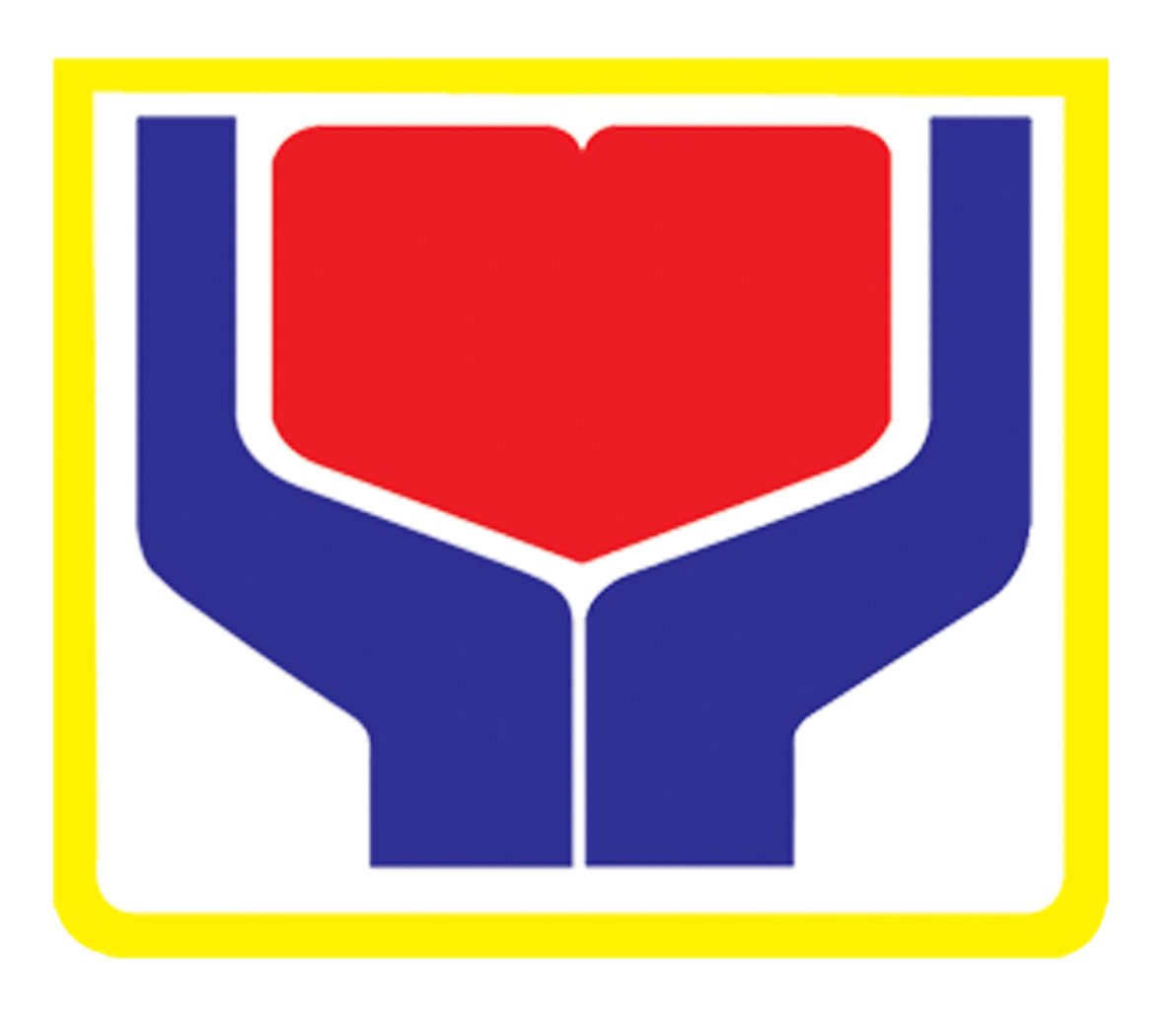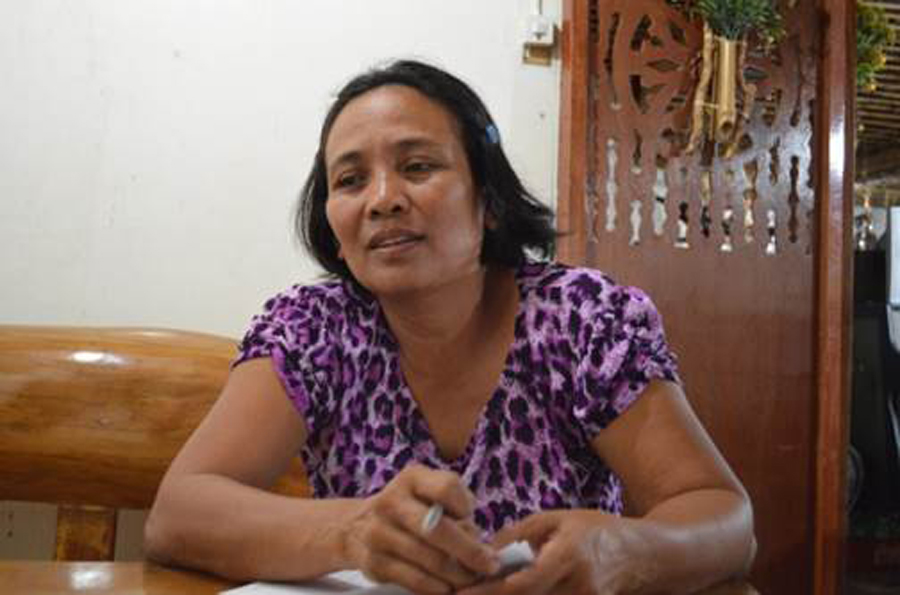Evangeline Roz and her husband Efren work almost non-stop to earn a living for their family of 11. It is only during rare days that someone is left at home considering that their children regularly go school. But, there was one in October 2008 when Efren was left at home and their household was surveyed. This began a series of opportunities for them.
******
In a house securing 11 people, it is only during rare days that someone is left at home. All the school-aged children are in school while Ate Evangeline Roz and her husband Efren work almost non-stop to earn a living for their family.
Ate Evangeline works as a barangay health worker, usually attending to her duties in the center and roving around the community for vaccinations and vitamins. Her husband, a farmer, plants various crops such as banana and corn to support their big family. Ate Evangeline helps him every now and then. Their hard work, however, is insufficient as they still struggle daily. However big or small their harvest is, their take home money is usually not enough to support their needs, especially keeping their children in school all at the same time.
One survey, Ate Evangeline shared, changed the course of their lives for the better. It was in October 2008 that their household was assessed. Luckily, Efren at home at that time and provided the answer to the assessment question, not knowing that it was the initial step for big government programs.
Helping the family get up
Ate Evangeline’s family was among the poor households identified based on the assessment in their locality –Brgy Bani, San Narciso, Quezon. In the same year, her family was registered beneficiary of the Pantawid Pamilyang Pilipino Program.
“Sobrang thankful ko po at naging benepisyaryo ako ng programa. Malaki po ang tulong ng Pantawid sa amin lalo na at pinagsisikapan talaga naming mag-asawa na pag-aralin ang lahat ng mga anak namin, kahit mahirap,” Ate Evangeline shared.
Pantawid Pamilyang Pilipino Program is a core social protection program of the national government that provides conditional cash grants to qualified poor families to support the health and educational needs of 0-14 years old children.
It was a huge relief for the couple that they found a helping hand, especially with sending their children to school. At that time, one of their children was in college and mostly gets the biggest share from what they earn from farming.
“Noong nagkaroon ng Pantawid, nailalaan namin sa iba ang kinikita naming mag-asawa. Nakakaipon kami at napagtagumpayan naming masuportahan ang ibang mga anak namin hanggang kolehiyo. Naiiyak nga ako kapag naiisip ko na kahit taga bundok kami at wala kaming pinag-aralan, kaya rin pala naming makapagtapos ng mga anak,” she shared.
More opportunities for the family
The couple’s main struggle is taking home a bigger portion of their earnings since they spend a lot on transporting their crops to the market.
“Kami ay nasa malayong lugar, dati kalabaw at paa lang ang ginagamit namin para magdala ng saging, mais at kopra sa bayan. Mahirap kumita ng pera,” Ate Evangeline shared.
She added it cost them 25 pesos to transport their goods to the market using a carabao and another 30 pesos for a tricycle to bring it to town. These transportation costs alone get so much from what they are supposed to take home for their children, not mentioning yet the time and effort they spend just so they can sell their harvest.
The two-kilometer farm-to-market road project in their barangay, which was constructed under the Kapit-Bisig Laban sa Kahirapan—Comprehensive and Integrated Delivery of Social Services (Kalahi-CIDSS) Makamasang Tugon, has brought a lot of change for the family. All her efforts as a volunteer in the Audit and Inspection Team paid off not only for her family, but for the whole barangay.
“Napakalaki ng naitulong ng farm-to-market road sa amin. Mas maganda na ang daan kaya mas mabilis, matipid at hindi na mapagod ang pagdadala ng kalakal sa bayan,” she shared.
As a result, the couple is able to earn more. However, despite the bigger income, the family still struggles since they have a lot of children to support.
The couple worked harder, determined to support their children’s education. Besides farming, Ate Evangeline engaged in selling beauty products to augment their family’s income, but is usually at a loss for extra money to settle bills with the supplier.
The family can never be thankful when they became a beneficiary of another program—the Sustainable Livelihood Program (SLP). The SLP is part of the DSWD’s convergence strategy, alongside Pantawid Pamilya and Kalahi-CIDSS, which aims to reduce poverty.
The SLP targets Pantawid Pamilya households like Ate Evangeline’s and provides zero-interest capital assistance and capability building to beneficiaries so they can start micro-enterprise ventures and lead their families towards self-sufficiency.
Ate Evangeline was loaned Php10,000, which she used as additional capital for her beauty product and farming business. Whatever profit she gets, she uses them to pay off her weekly obligations to the program, save for future ventures, and support her children not covered by Pantawid Pamilya.
“Lubos ang aking pasasalamat sa mga programa ng gobyerno, napakalaking tulong ang nagawa nito sa amin. Nakakatuwang isipin na kahit nasa bundok at malayo kami, naabot pa rin kami ng tulong at nabago ang buhay namin,” she shared.***

